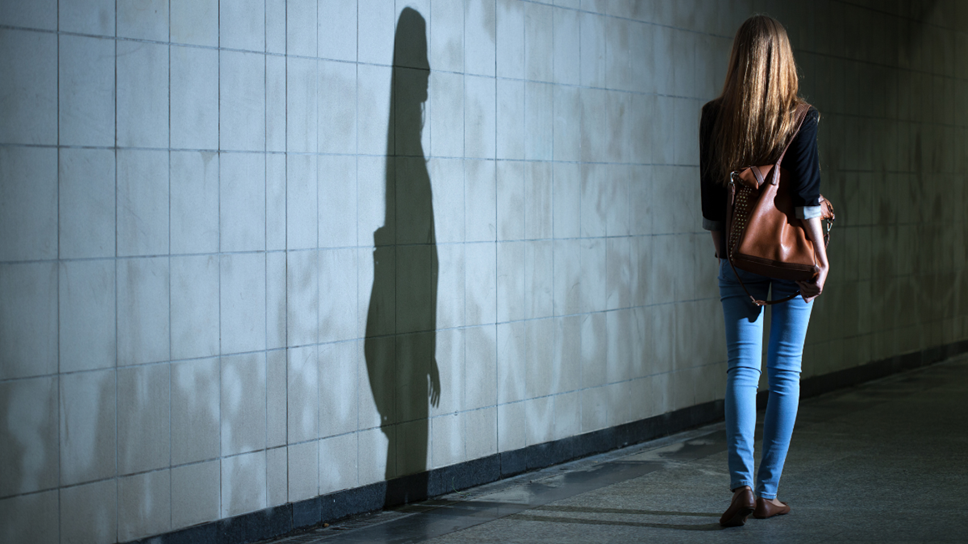
New Council Licensing Policy Aims to Improve Late Night Safety for Women
- New Council Licensing Policy makes women's safety at night a key consideration
- The Council plans to work with partners - including late night venues - to make Reading a safe place to enjoy a night out
THE Council is moving to make women’s safety a key consideration when determining future decisions on Reading’s night-time economy.
An increase in reports of both drink spiking and demand for welfare and police services in the town means further work is required in developing Reading’s night-time economy to improve actual and perceived safety for visitors, residents and those who work in the town at night.
As such, a specific section on vulnerability and violence against women and girls in Reading’s late-night economy has been included as a key element within the renewed Licensing Policy for Reading.
While Council’s Licensing department intends to keep the prevalence, prevention and reporting of sexual harassment and misconduct under continual review, businesses are expected to develop their own harm-reduction policy, particularly at premises where incidents of physical and sexual violence are most frequently reported. They should include sufficient measures to protect and provide support to customers in spiking, coercive control and other incidents involving women or girls.
Reading Borough Council for its part would aim to promote best practices, including the Night-time Industry Association (NTIA) standards of good practice for dealing with spiking and having a duty of care for customers, as well as integrating with other safety-related initiatives in the town. These include:
- Promoting Reading’s Women’s night-time safety charter and supporting the delivery of WAVE (What is WAVE? — Safer Sounds Partnership) training across licensed premises
- ‘Night Angels’ – Security Standards Authority (Security Industry Authority - GOV.UK (www.gov.uk) licensed door supervisors that patrol the town during the evening and night-time economies, and Street Pastors
- The ‘First Stop’ service offering medical and other support during weekends and peak times like the Christmas & New Year periods
- Safer Street 4 funding which is being used to improve night-time safety for people working and socialising in the town. This includes the establishment of a Safe Hub in the Town Centre, running community safety campaigns, working with bars, pubs and clubs, and promoting safe routes home for those enjoying the town at night
- A Safer Students Partnership – bringing together the Council, the University, Students’ Union (RUSU) and Reading College to address key safety issues for students (16-25 years old)
Regular taxi and private hire enforcement to reduce risks to public safety would continue, as would partnership working with Thames Valley Police, Reading’s PubWatch, Reading’s Business Improvement District and Reading’s Economy and Destination Agency, amongst others.
Karen Rowland, Reading Borough Council’s Lead Councillor for Community Safety, said:
“Reading boasts a vibrant, lively night-time economy which people come from many miles around to enjoy, but we all have a responsibility to every single woman or girl to ensure we do everything possible to make our town a safe place in which to enjoy a night out.
“That is a joint responsibility shared among the Council and its partners, including the late-night bars, restaurants and entertainment venues that make-up our vibrant and attractive scene. The Council’s new updated Licensing Policy further reiterates those standards that we expect from businesses and new applicants going forward in this area, with the introduction of a specific section on vulnerability and violence against women and girls.
“The rise in instances of spiked drinks or welfare calls to police is by no means unique to Reading, but by putting in place new policies locally and working with partners we can make a difference to the night-time operation of our premised businesses and look to reverse that increase in Reading.”
Under the Licensing Act, local councils like Reading need to review their Licensing Policy every five years. Reading’s new draft policy was consulted on during the summer. Subject to approval at this Thursday’s (Sep 28) Licensing Committee meeting https://democracy.reading.gov.uk/documents/g5312/Public%20reports%20pack%2028th-Sep-2023%2018.30%20Licensing%20Applications%20Committee.pdf?T=10 and then at Full Council on October 17, Reading’s new Licensing Policy would come into force on 22 October 2023.
The Licensing Policy is a key document for the regulation of the night-time economy within Reading. It clearly outlines what the Council expects of applicants and licence holders and relates to all premises licences (pubs and clubs), late night refreshment, and regulated entertainment venues in Reading, including those operated by the Council itself. The licensing framework must centre around the four licensing objectives:
- To prevent crime and disorder
- To protect children from harm
- To prevent public nuisance
- To maintain public safety

